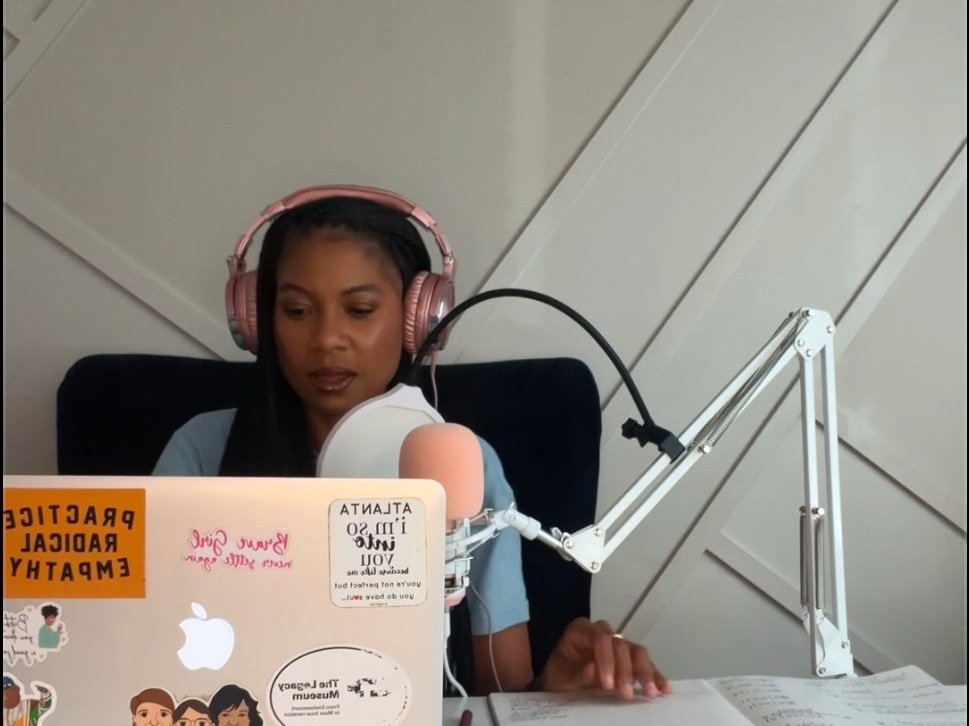Welcome to the Radical Southern Belle Blog! Here, you will find insights, reflections, and stories!
10 Ways to Gaining Clarity Around Your Vision
Gaining clarity around your vision is a journey—one that requires reflection, patience, and self-discovery. In this post, explore 10 practical ways to uncover your purpose, from journaling and letting go of what no longer serves you to trusting your inner knowing and finding flow. Clarity may not come overnight, but the process is worth the wait.
The Radical Southern Belle: Walking in Your Purpose and Owning Your Journey
Finding your purpose is rarely a straight path—it’s often filled with twists, doubts, and unexpected turns. For years, I let fear and self-doubt hold me back from pursuing ideas I was passionate about. But I’ve learned that purpose isn’t something we find—it’s something we build. It grows through resilience, reflection, and the courage to break free from others’ expectations. In this post, I share how embracing vulnerability, celebrating the journey, and reclaiming the title of Southern Belle has helped me walk boldly in my purpose. Together, let’s explore what it means to own your unique journey and create a life rooted in authenticity and empowerment.
The Evolution of Self-Care: From Acts of Comfort to Deeper Self-Love
Excerpt:
Self-care is more than bubble baths and spa days—it’s about showing up for yourself in meaningful ways every day. It’s about recognizing your triggers, understanding your needs, and taking intentional actions that nurture your mind, body, and soul. In this blog, we dive into the deeper practices of self-care, exploring how acts of self-love can transform your relationship with yourself and the world around you. Discover what it means to move beyond surface-level care and embrace a journey of true restoration and growth.
Criminalization and Community: Reflections on an Encounter in Little Rock
During a quick stop at a gas station in Little Rock, I encountered a wall of photos depicting Black patrons accused of theft, including two young girls labeled with a handwritten note asking, 'Where are your parents?' This moment stirred something deep within me, highlighting the painful reality of racial profiling and the criminalization of Black youth in our communities. It also made me reflect on the complex dynamics between Black communities and immigrant-owned businesses and the urgent need for mutual respect and understanding.
Embracing the Mic: Preparing for My First Podcast Episode
Have you ever had a moment where life pushed you to pause, reflect, and redefine your path?
That was me, sitting on the other side of law school. I had achieved the degree, survived the exams, and crossed the finish line—but I was still wondering, what’s next? I felt... stuck. I knew I didn’t want to practice law, but I had this dream, this vision of what my life could be, but I couldn’t figure out how to take that next step.
Bridging Despair and Hope: A Radical Call to Action Post-Election 2024
The 2024 election wasn’t just a political event—it was a stark reminder of America’s ongoing moral crisis. Reflecting on the deep inequities in places like Phillips County, Arkansas, where systemic racism and disinvestment persist, this piece explores the intersections of civic engagement, health outcomes, and the resilience required to move forward. With insights from Reverend Dr. William J. Barber II and a focus on history’s lessons, we ask: how do we bridge despair and hope to build a more equitable future?






